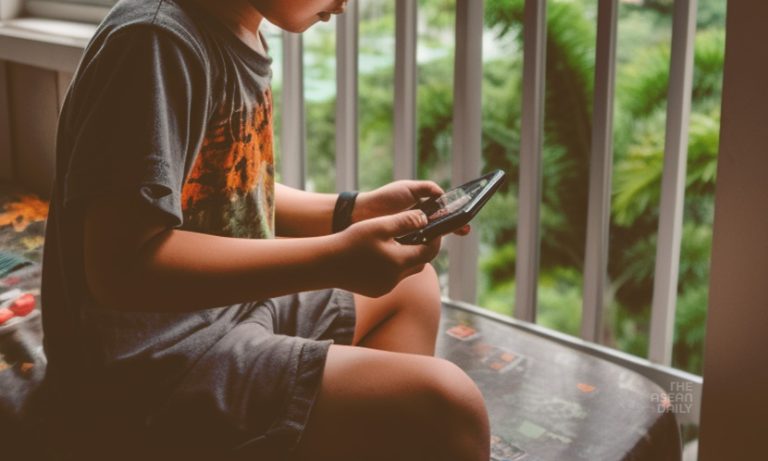26-7-2024 (JAKARTA) A mental health facility in East Java, Indonesia, has reported treating a staggering 3,000 children and adolescents for mobile gadget and online game addiction since the beginning of 2024. This alarming statistic, revealed by the Menur Mental Hospital in Surabaya, underscores a growing crisis that threatens the well-being of Indonesia’s younger generation.
Dr Ivana Sajogo, a psychiatrist at the hospital, painted a concerning picture of the affected youth. According to her, these young patients often exhibit angry and antisocial behaviours, with their addiction typically progressing from mobile devices to online games. The standard treatment protocol involves a two-week stay at the hospital, during which therapists work to uncover the root causes of the addiction and implement appropriate therapeutic interventions.
This troubling phenomenon is not isolated to East Java. It reflects a broader national issue, with Indonesia recently crowned as the world’s most mobile phone-addicted country. The State of Mobile 2024 report, published by US-based Data AI, revealed that Indonesians spend an average of 6.05 hours daily on their mobile devices – a figure that has raised eyebrows among health professionals and policymakers alike.
The problem is particularly acute among the country’s youth. A survey by the Indonesian Internet Service Providers Association found that Generation Z, those born between 1997 and 2012, constitute the largest percentage of internet users in Indonesia. Even more alarming, data from the Central Statistics Agency in 2022 showed that over a third of children aged six and under were already using mobile phones or wireless gadgets.
The consequences of this digital dependence are far-reaching and potentially severe. Dr Sajogo warns that gadget addiction can lead to a range of behavioural issues, including emotional disturbances, impulsiveness, and aggression. In extreme cases, the impact can be life-altering or even fatal.
One such case was reported in Jember, East Java, where two siblings, aged 17 and 19, became so engrossed in online gaming that they ceased to recognise their own parents. In another tragic incident in Blitar, a 17-year-old took his own life after his parents confiscated his mobile phone, which he used for online gaming.
The Indonesian Child Protection Commission (KPAI) acknowledges that this is a nationwide issue. Commissioner Retno Listyarti noted that psychiatric hospitals in Jakarta and West Java have had to open paediatric wards specifically to treat children with mental disorders linked to gadget addiction. The COVID-19 pandemic has exacerbated the situation, with lockdowns and social distancing measures pushing more children towards digital devices for entertainment and social interaction.
In response to this growing crisis, the Indonesian government is taking action. The Ministry of Women’s Empowerment and Child Protection is finalising a Presidential Regulation aimed at protecting children from the negative influences of online games. Deputy Minister for Child Protection, Mr Nahar, stated that the regulation, expected to be issued later this year, will address the rise in crimes such as violence, pornography, sexual harassment, and bullying committed by children under the influence of online games.




